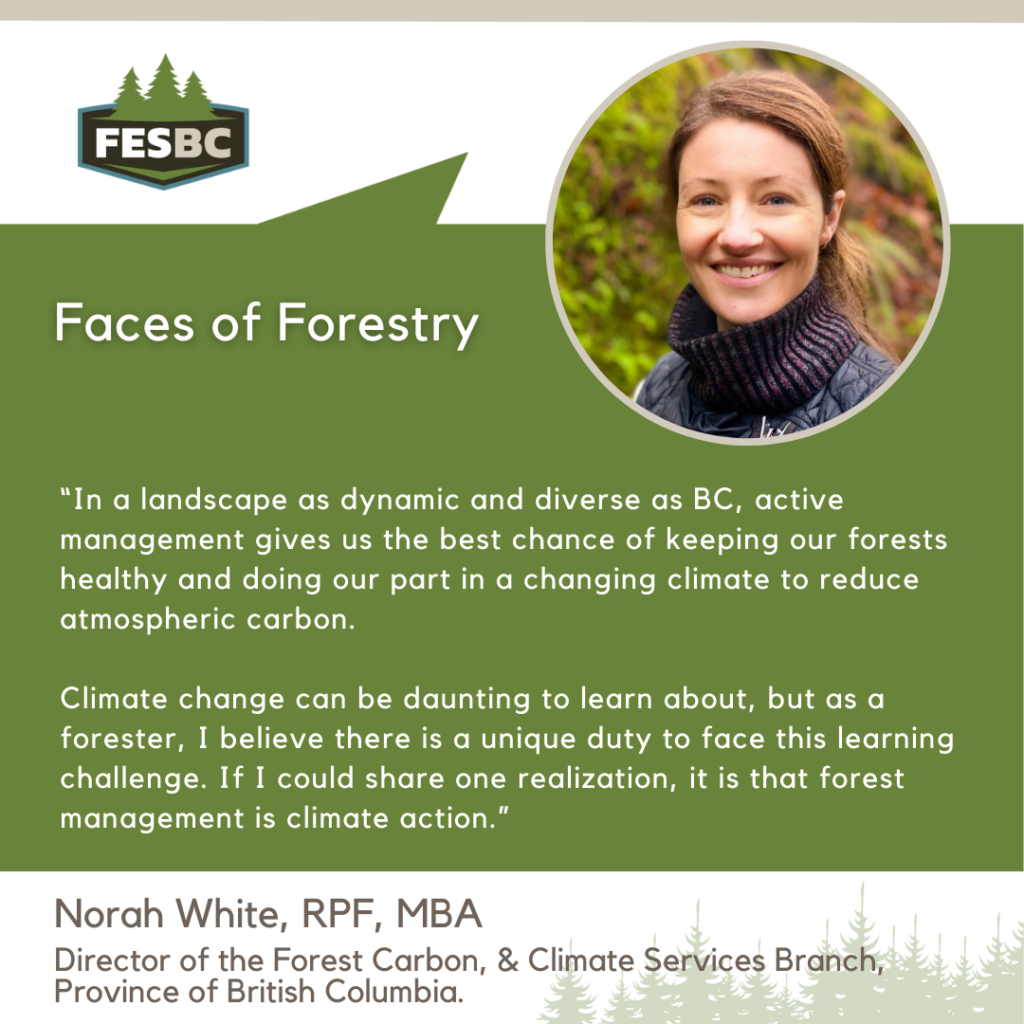Faces of Forestry is an initiative of the Forest Enhancement Society of BC (FESBC) to highlight people doing great work to enhance our forests throughout British Columbia. This month, we feature Norah White, RPF, MBA, Director of the Forest Carbon, and Climate Services Branch, Province of British Columbia.

Norah has always been drawn to the diversity of BC’s ecosystems and it was her love of nature that pulled her into working with natural resources. She has spent nearly 20 years in the forestry sector working on traditional forestry topics such as monitoring, planning, and stewardship and what she considers the “new frontier” of forestry, which is the role of forestry practices in mitigating and adapting to climate change risks.
Norah is a Registered Professional Forester and the Director of the Forest Carbon and Climate Services Branch (FCCSB) in the Office of the Chief Forester with the Ministry of Forests. “We are the climate change engine of our Ministry, and it is exciting to be a part of a team of innovative thought leaders who are contributing to work that has a global impact,” said Norah.
In the FCCSB, Norah’s team researches the vital role that forests play in absorbing and storing carbon from the atmosphere and how sustainable forestry practices can ensure our forests are climate resilient. From modifying planting and harvesting practices, to tracking carbon through wood products, rethinking the utilization of slash piles, implementing carbon off-set projects, and more, Norah’s branch is responding to the urgent priority that climate change poses to our natural resource sector and how forests and foresters can be part of the solution.
“In a landscape as dynamic and diverse as BC, active management gives us the best chance of keeping our forests healthy and doing our part in a changing climate to reduce atmospheric carbon,” said Norah. “Climate change can be daunting to learn about, but as a forester, I believe there is a unique duty to face this learning challenge. If I could share one realization, it is that forest management is climate action.”
Norah’s team collaborates with forestry professionals, Indigenous nations, scientists, and climatologists to facilitate and support the extension of knowledge. “Our research is pushing the bounds of lifecycle analysis to help us see what the optimal carbon and economic management options are,” said Norah. “We are learning more every day about what ecosystems are capable of and how forestry practices can be synonymous with reconciliation.”
